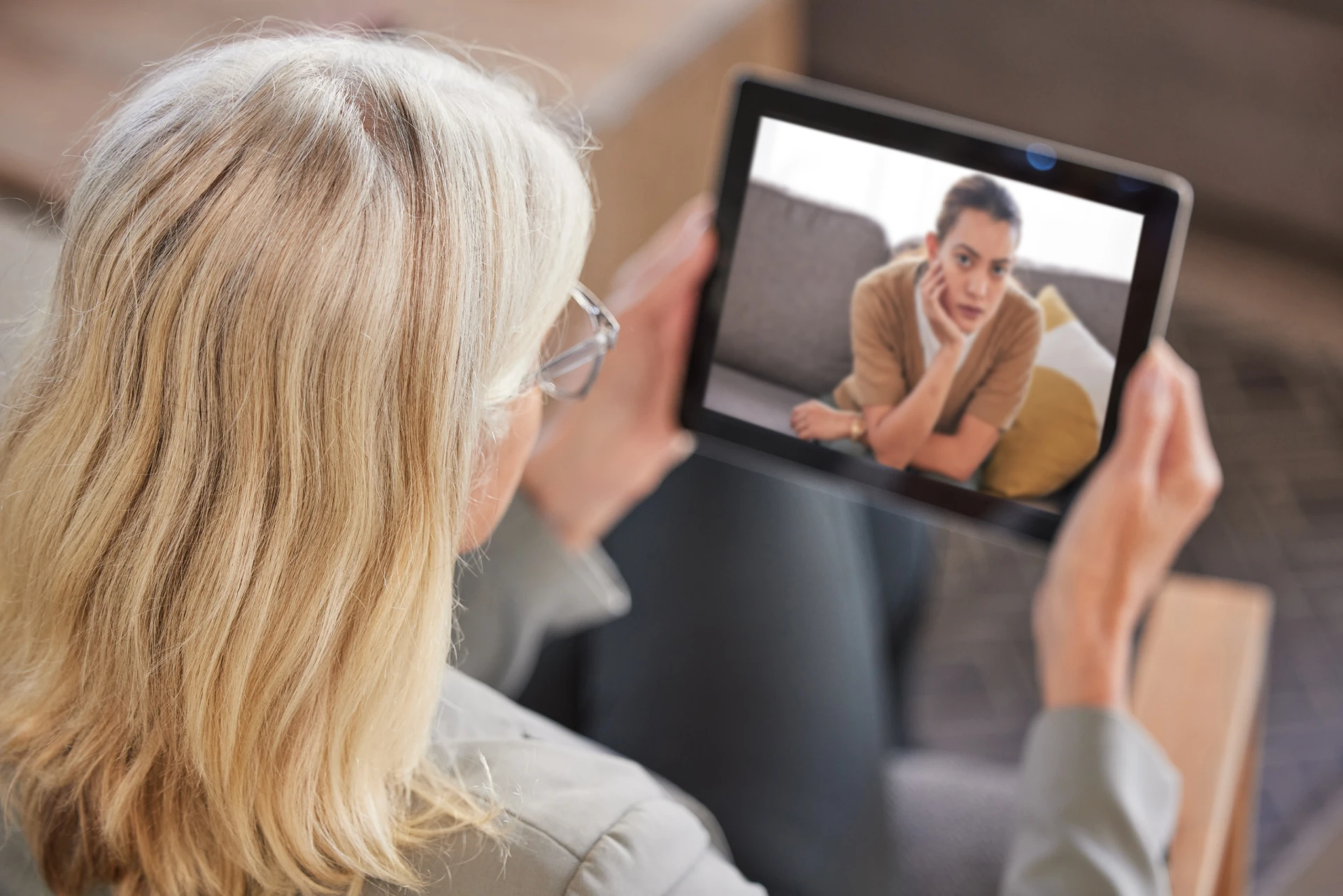Introduction: Why Connection Matters
Human beings are wired for connection. Close relationships with family, friends, and supportive communities are integral to our emotional and physical health. Yet, many people feel lonelier than ever in today’s fast-paced, technology-driven world. Busy schedules, social media, and even fear of vulnerability can make it challenging to cultivate the deep, meaningful connections that bring us fulfilment and healing.
The effects of disconnection run deep. Loneliness not only impacts emotional well-being but also physical health, leading to increased stress, weakened immune function, and a higher risk of chronic disease. Whether navigating life’s challenges, recovering from illness or trauma, or simply looking to enrich your quality of life, fostering stronger bonds with others is key to finding balance and thriving.
This whitepaper explores the transformative power of relationships, how connection supports healing and actionable steps for cultivating meaningful bonds.
The Science of Connection: How Relationships Impact Health
Decades of research underscore the critical role relationships play in human flourishing. From reducing stress to promoting recovery, social bonds directly influence how we experience life’s challenges.
1. The Link Between Connection and Emotional Health
Strong relationships provide emotional support and reduce feelings of isolation during tough times. They offer a sense of belonging and validation, which mitigates:
- Stress, anxiety, and depression.
- Emotional exhaustion or feelings of overwhelm.
- Rumination and self-doubt can be achieved by providing external perspectives and encouragement.
What the Research Says:
- A study published in The Journal of Health and Social Behavior found that individuals with strong social support systems report lower levels of emotional distress than those who feel isolated.
- Relationships marked by trust and open communication foster resilience and provide emotional “buffers” against life’s challenges.
2. Physical Health Benefits of Connection
Close relationships do not just make us feel better mentally; they also support physical health by reducing the body’s stress response. Isolation, on the other hand, triggers chronic stress, impairing immunity and increasing the risk of health problems.
- Supportive relationships lower cortisol (the stress hormone).
- Interactions with loved ones promote the release of oxytocin, a hormone that alleviates stress, reduces blood pressure, and fosters feelings of safety.
What the Research Says:
- A meta-analysis in PLOS Medicine found that individuals with strong social relationships had a 50% higher likelihood of survival than those with weaker connections.
- Loneliness has been linked to higher rates of chronic conditions, such as hypertension, heart disease, and inflammation.
3. Connection and Pain Tolerance
Social support can also alter how individuals process physical pain. Research shows that close relationships enhance pain tolerance and decrease perceived pain levels.
- In one study, individuals recovering from surgery reported lower pain levels and faster recovery when cared for by attentive, supportive partners or communities.
The Impact of Disconnection
Unfortunately, disconnection—whether caused by life circumstances, trauma, or unresolved relationship issues—can worsen emotional and physical health. Increasing rates of loneliness, especially in the wake of societal shifts like the pandemic, highlight a troubling trend:
- Nearly 1 in 3 adults report feeling lonely frequently or consistently.
- Chronic loneliness increases the risk of premature death on par with smoking or obesity (American Psychological Association).
Disconnection can lead to:
- Heightened vulnerability to stress and mental health struggles, such as anxiety and depression.
- Difficulty managing chronic health conditions due to reduced motivation or emotional distress.
- Increased self-criticism reinforces cycles of isolation and avoidance of reaching out.
How Connection Supports Healing
Meaningful relationships allow us to:
1. Share and Process Emotions
Sharing emotions with trusted individuals helps alleviate the “mental load” of stress, reducing the intensity of negative feelings. This is particularly critical for individuals facing health recovery, emotional trauma, or anxiety.
2. Feel Understood and Validated
Connection fosters a sense of acceptance, reduces self-doubt, and helps individuals embrace vulnerability, which is essential for emotional healing.
3. Rebuild Trust and Safety
For those who have experienced challenging relationships or relational trauma, building healthy connections can rewire the brain’s sense of safety, paving the way for more profound healing.
Overcoming Barriers to Connection
Building meaningful relationships requires effort, vulnerability, and self-awareness. Many individuals struggle to connect due to:
- Fear of rejection or judgment stemming from past relational trauma.
- Busy schedules that leave little time for nurturing relationships.
- Difficulty expressing emotions, often rooted in shame or self-doubt.
Thankfully, taking small, intentional steps can foster reconnection.
Practical Strategies for Building Stronger Connections
1. Cultivate Vulnerability in Safe Spaces
Opening up about challenges or emotions fosters trust and strengthens bonds. Start by sharing small thoughts or feelings with people you trust.
2. Limit Surface-Level Interactions
Focus on quality over quantity. Prioritise deeper, more meaningful conversations over generic ones.
3. Listen Actively
Genuine connection starts with listening. Give your full attention to others—without interrupting or planning your response. Use nonverbal affirmations, like eye contact or nodding, to signal your engagement.
4. Learn to Express Your Needs
Communicate openly about what you are experiencing and how others can support you. Practice using “I” statements to articulate feelings (e.g., “I feel overwhelmed when…”).
5. Join Groups or Communities
Seek opportunities to connect with like-minded individuals, such as support groups, hobby clubs, or community volunteering. Shared experiences create natural bonds and combat loneliness.
6. Practice Self-Compassion
Address self-criticism or feelings of unworthiness that prevent you from reaching out. Building a kind and supportive relationship with yourself lays the groundwork for stronger relationships with others.
How Therapy Can Support Connection
Therapists can play an essential role in helping individuals strengthen their relational skills, overcome isolation, and heal wounds from past disconnection. Psychological interventions that foster connection include:
1. Attachment-Focused Therapy
It helps clients heal from relational trauma and rebuild trust in relationships by helping them understand attachment patterns and create healthier connections.
2. Group Therapy
Provides a supportive environment to practice vulnerability, communication, and openness with others who share similar experiences.
3. Interpersonal Therapy (IPT)
Focuses on addressing relational conflicts or interpersonal difficulties that impact mental health.
4. Cognitive Behavioural Therapy (CBT) for Disconnection
Supports clients in challenging negative thought patterns (e.g., “I’m unworthy of support”) to enable greater emotional openness.
By rebuilding connections and fostering relational skills, therapy empowers clients to thrive emotionally and physically.
Conclusion: Rediscovering the Power of Connection
Connection is central to human health and happiness, but in today’s world, it is easy to lose sight of our fundamental need for meaningful relationships. With intentional effort and the right tools, strengthening bonds with others can unlock profound transformation in one’s mental and physical well-being.
Do not hesitate to reach out if disconnection, loneliness, or relational challenges are weighing on you. Our therapists help guide you toward more profound connection and fulfilment, one step at a time.
References
- Holt-Lunstad, J., Smith, T. B., & Layton, J. B. (2010). Social relationships and mortality risk: A meta-analytic review. PLoS Medicine, 7(7), e1000316.
- House, J. S., Landis, K. R., & Umberson, D. (1988). Social relationships and health. Science, 241(4865), 540-545.
- Cacioppo, J. T., & Patrick, W. (2008). Loneliness: Human Nature and the Need for Social Connection. W. W. Norton & Company.
- Coan, J. A. et al. (2006). Lending a hand: Social regulation of the neural response to threat. Psychological Science, 17(12), 1032-1039.
- Neff, K. D. (2011). Self-compassion, common humanity, and resilience to stress. Current Directions in Psychological Science, 20(2), 108–113.









